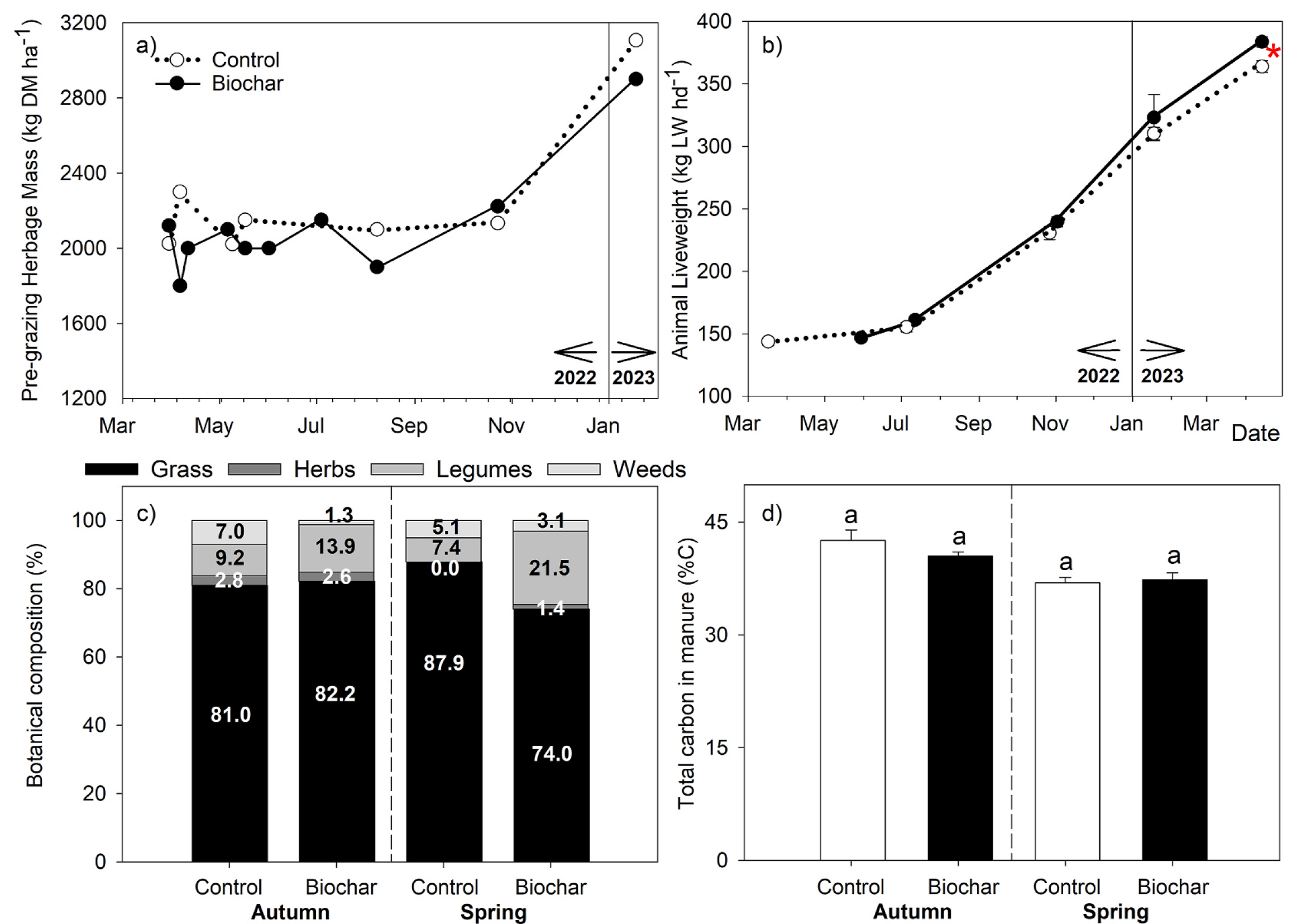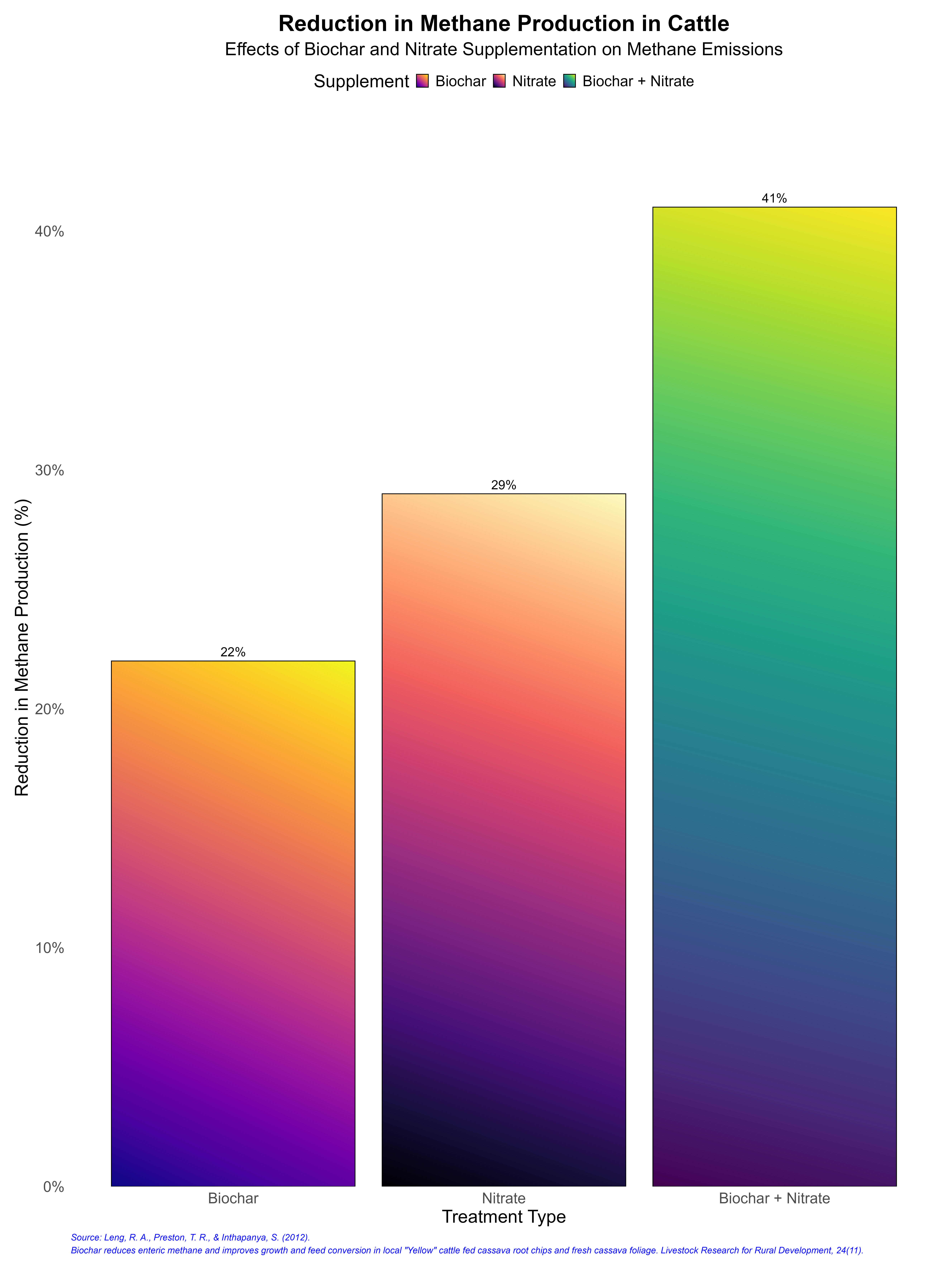🌱 Biochar in Animal Feed: A Game Changer for Sustainability
Adding biochar to livestock feed improves feed conversion rates, leading to a 5% increase in liveweight gain (Bilotto et al., 2024). Better feed utilization means faster growth and healthier animals 🐄.

Results from farm experiments with cattle fed biochar ad libitum at Deloraine, Tasmania, Australia.
(a) Pre-grazing herbage mass in the grazed paddocks (kg DM/ha), (b) mean animal liveweight (kg/hd)
from grazing steers fed with biochar (n = 65) or no biochar (control, n = 50), (c) botanical composition (%),
(d) mean total carbon content of manure collected in autumn and summer 2022. The data collected for mean animal liveweight
met the requirements for a parametric t-test, and significant differences found between the biochar and control groups
(p < 0.01) are indicated by a red star. No significant differences in total carbon content (%) in manure were observed
between the biochar and control groups. The analysis of total carbon content in manure was conducted separately for each
season, with identical letters indicating no significant differences between the groups within autumn (p = 0.19) or spring
(p = 0.73). Error bars represent the standard error of the mean. (Bilotto et al., 2024, DOI: 10.1016/j.tifs.2024.104579).

